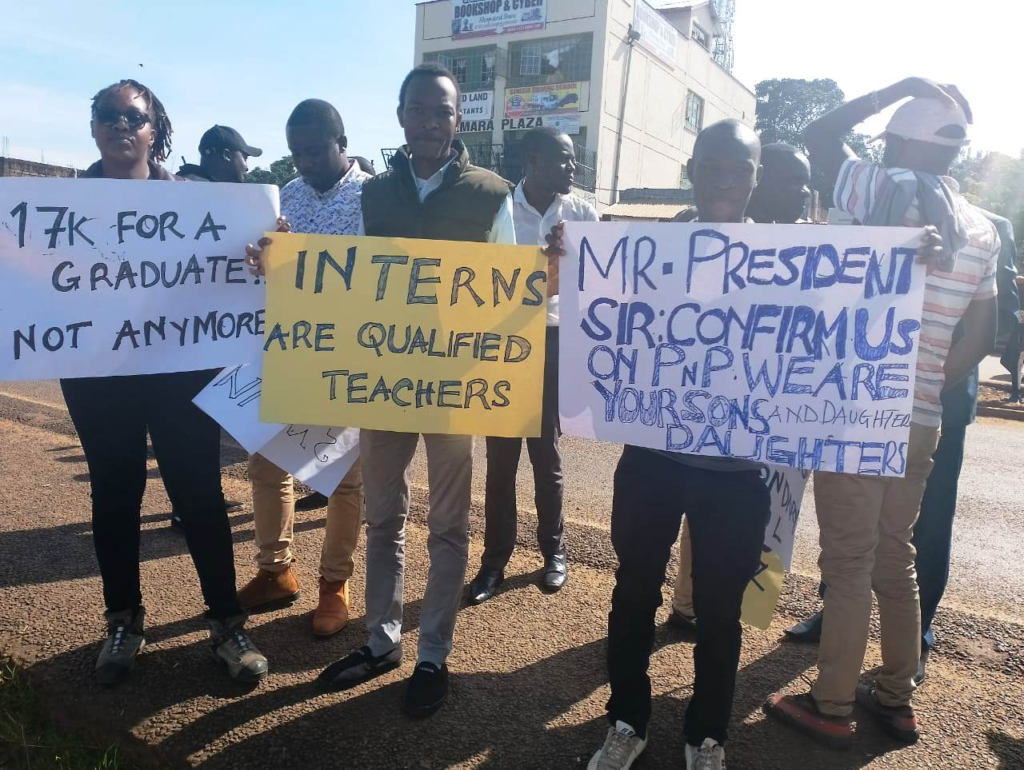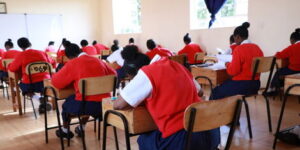
| Gichuiya Nancy |
Now in its second week, Kenya’s junior secondary school teachers’ strike is severely disrupting the country’s educational system.

Since the teachers’ union and the administration have not yet reached a settlement, thousands of children are still not in the classroom. Teachers feel that their complaints have been disregarded for too long, which is why they went on strike more than two weeks ago. Inadequate teaching materials, unequal pay, and unfavorable working circumstances are the main issues of criticism.
The main complaint of the teachers is the pay gap with respect to their colleagues at other educational levels. Junior secondary school educators contend that their pay is out of proportion to the amount of work they accomplish. The teachers say that their repeated requests for pay modifications from the administration have been ignored, and that the strike is their last resort.
Teachers’ demands for improved teaching resources go beyond salary disputes. Lack of essential educational supplies including textbooks, lab equipment, and teaching aids in many junior secondary schools makes it difficult for teachers to provide high-quality instruction. The teachers contend that without these necessary tools, they are unable to carry out their jobs in an efficient manner, and that in the end, it is the children who suffer.
The instructors’ frustrations are increased by their unfavorable working conditions. The number of junior secondary schools is excessively high, with teacher-to-student ratios significantly higher than what is advised. Teachers are under tremendous pressure in this scenario since they find it difficult to oversee huge classes while making sure that

In order to lessen this load and improve the learning environment, the teachers are requesting that more employees be hired. Concerns about career advancement and job security have also been raised by the walkout. Junior secondary school instructors believe that the current system offers few opportunities for professional development. They feel that providing clear paths for professional progression and promotions will not only inspire teachers but also raise the standard of education in general.
The teachers also want their retirement benefits and healthcare to be improved. Numerous educators claim that the inadequate healthcare coverage in place now leaves them exposed to medical risks when they get sick. Concerned about the sufficiency of their retirement benefits, they contend that following years of service, In their senior years, individuals ought to have greater financial stability.
Parents, students, and supporters for education have all paid close attention to the protracted walkout. Particularly with important examinations coming up, parents are growing more concerned about how the strike may affect their kids’ education. Conversely, students find themselves in the middle, losing out on important learning opportunities and feeling more anxious about their academic futures.
The government has come under fire for its mediocre handling of the strike. Teachers contend that although there have been some attempts at communication, these efforts have been inadequate and vacuous. They are calling on the government to take a more serious stance toward resolving their issues, not merely make hollow promises.

Since the strike is still ongoing into its the administration is under increasing pressure to find a solution as it enters its second week. The educators don’t waver in their demands, stressing that they are working for a better education system that benefits everyone, not just themselves. The resolution of this impasse will probably have a lasting effect on Kenya’s junior secondary school system going forward.
In their demonstrations they said ‘’it is the government which must be clear with a clear framework come on the table and renegotiate with the GSS leadership and reassure that the state that we have in the jss section in Kenya is brought to an end to all the head teachers the CSO and the sub count directors of Education who are in intimidating teachers we are not going to accept that that that is that is barbaric that is ilit and it dubious frity’’






